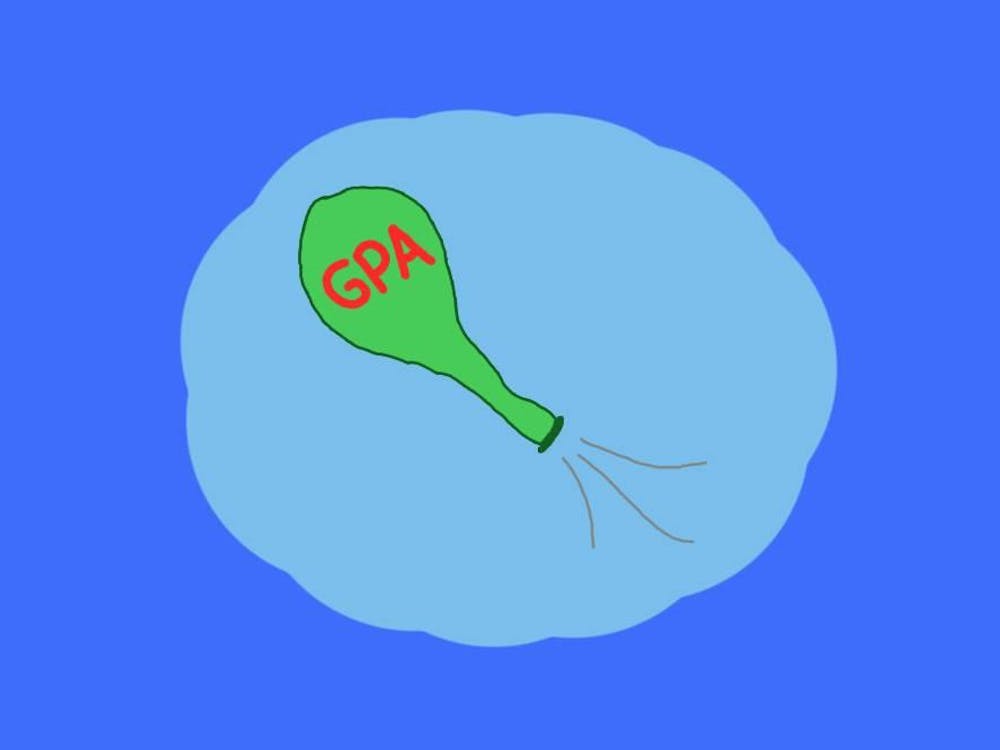AS WORLD War II was spreading in the beginning of 1941, President Franklin Roosevelt gave his famous speech in which he outlined four essential human freedoms: freedom of speech, freedom of worship, freedom from want, and freedom from fear. It may seem hard for our generation to conceive of what these freedoms really mean because they are not something we ever have had to search for or fight for. They simply always have been there for most of us.
We did not face the threats of economic depression and fascism as our grandparents did. We did not have to fight the civil rights battles of the '50s and '60s. We have not lived through a bloody and divisive war like Vietnam. Our outlook has not even been shaped significantly by the Soviet threat in the Cold War, as that threat disappeared before most of us were even teenagers.
Our generation has faced few tests. No one will write a book about us like Tom Brokaw's story of the Americans who came of age during World War II, "The Greatest Generation." This generation grew up in the Depression and defeated fascism. It saved the free world. This was not a frivolous group.
We have developed differently from this generation because we have not faced significant moral and ideological tests. We have been privileged not to have to support our families during an economic depression, fear a powerful enemy, or go off to war.
We are lucky enough not to have a mission in which we are fighting for survival. So what becomes our mission?
It seems that many in our generation have just decided not to answer this question, believing there is no battle to be fought. To a certain extent, we are a utilitarian generation. Instead of facing the battles or moral questions of our parents and grandparents, we pursue material success. Many of us see few problems in the world. We don't feel there are crises we must face, so we think it's acceptable to make wealth a primary goal.
This is a very personal decision. It goes to the core of who we are. What do we want to accomplish with our lives? Maybe we don't have life and death issues that we must respond to, but does this mean it's okay just to pursue personal wealth? Maybe.
But maybe it's not. Maybe there's more to life than being a cog in a big business. Maybe there's more to life than seeing a bank account swell. More than providing a big house, nice cars and comfortable lives for our family. When we look back on what we have accomplished in our lifetimes, do we only want to see that we led comfortable lives?
The answer to the question of what our generation must accomplish isn't as clear cut for us as it was for others. We don't have a war to fight or a bad economy to overcome. We aren't struggling for survival. But because of this, don't we have a greater calling? Don't we have a responsibility to the generations that preceded us, to those who had to struggle for survival, to those who fought so we could live in freedom? Because of their sacrifices, don't we have a responsibility to expand on their achievements? Don't we have a responsibility to go one step further? Don't we have to do something more than just get rich?
This has been a century filled with fear; a century in which the world could have been destroyed, or fallen under the terrors of Nazism, or shrouded in the Iron Curtain. But we survived. The world is a much better place now than it was in 1900. It's not only better for us, but for everyone. Life expectancy has increased worldwide, and the number of democracies worldwide has increased enormously. In 1900 only six out of the 43 countries were democracies, and in 1980, of the world's 121 countries, only 37 were democracies. But by 1998, 117 of the 193 countries were democratic.
Unquestionably, we are living in a great era, but that doesn't mean we can sit back on our laurels - in part because they are not our laurels, but those of our parents and grandparents. We must expand on their accomplishments. The job of making the world a better place is never done.
In a way it's a little more difficult now because it isn't clear what battles we must fight. This is where we must make personal decisions. We must decide how we are going to make the world better: whether it's by further spreading democracy, by helping to eradicate hunger and disease, or by doing the countless number of other things that we are now free to accomplish because we don't have to think about simply struggling for survival.
What we take away from our ancestors' hard fought battles should not be runaway materialism. It should not be merely the pursuit of wealth. We must do more than that. Our generation is in danger of being unparalleled material utilitarians because we are afforded the freedom to do so. We must resist the temptation to look out for only ourselves, to achieve only financial success. After all, what kind of accomplishments are those compared to saving the world from totalitarianism? We all must strive to make some contribution in this period of success and tranquillity that our forebears have carved out for us.
(Peter Brownfeld's column appears Mondays in The Cavalier Daily.)




